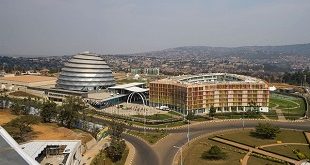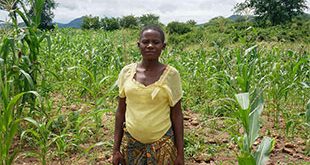
By Joan Akello
How learning music is reforming the rebellious hearts and minds of street children and giving abandoned children hope
Ronald Sseruyange will never forget how one of the big boys dislocated his jaw as a way of introducing him to the harsh life on the street when he was barely six years old. He was a street child for ten years. He quit the street in 2000 after two of his friends Alex and John, who had quit the previous year to stay at Cornerstone Development, a rehabilitation organization for street children, convinced him to join them.
He did and became an agent, to help the homes get street children because it was difficult to convince them that it would be safe. Mistrust is a street child’s first instinct of any person who says they want to help.
“I lived in Cornerstone for two years but it was a home where studying the Bible was the only activity with no bearing on a traumatized soul like mine,” Sseruyange recalls, “About six children went back to the streets yet the home had food and free education.”

This is one of the reasons why the manager of the home decided to explore ways of making the children happy.
When she visited Makerere University in 2000, with the Norwegian Ambassador, she walked up to one of the performers in the Music Dance and Drama Choir that was entertaining the guests. Her only request was to help her make the distressed and stressed Former Street children stay and be happy at home.
Milton Wabyona accepted to do offer some help although he knew he was venturing into virgin territory. Today, this has become his full time commitment – helping street children to reform through music.
He decided to create and use traditional music and folklore to rehabilitate street children, who are rejected by society.
“If your child is a problem, you (parent) will pay the price,” Wabyona says, “It is our responsibility to ensure we include street children back into our community.”
In 2003, Wabyona founded his own organization Ugandan Heritage Roots (UHR). It is nine years since he last received a grant from the Norwegian Embassy and other donors to support UHR, but that has not stopped Wabyona from training over 400 youths. Though it was not his original idea, Wabyona, who narrowly went on the street too, housed over 45 children in the beginning but currently has 15, because he depends mostly on his salary and income generated from performances.
Losing his parents at a tender age, Wabyona studied at Hoima High School without paying fees except in Senior One due to his academic excellence. However, he could not proceed to ‘A’ level; school fees was very dear and his previous school had only up to ‘O’ level. He left Hoima Town and started fishing on Lake Victoria but returned a year after due to frustration. He went into farming.
When African Village Cultural Dance Group held auditions to get traditional dancers; he participated and was selected. Unfortunately or fortunately, Wabyona was the only one who never went to school among his peers at the centre and his situation compelled management to pay his school fees till 1997 when he finished his ‘A’ levels.
Again, he was lucky to secure a government scholarship to pursue a diploma in music, dance and drama at Makerere University. While most of his peers laughed at his choice, by mid semester his lifestyle was beginning to change. He had a stint with Annet Nandujja to train her dance group – The Planets – in other traditional dances since Nandujja’s forte at that time was Kiganda dance. He would earn Shs 20,000 per week. By the end of his course, he got a first class and was sent as an exchange student to one of the Universities in Norway to help people with disability, mental disorders, and drug addicts. It is from this centre that Wabyona says he learnt about music therapy.
“Music is not just entertainment but a discipline that can shape the human mind in the direction the composer of the music intends, “Wabyona says, “Music acts as a stimulus to other abilities, it can make you happy or sad.”
So as a care taker, he had to ensure these people lived like other human beings. Even when he returned in 2000 to pursue a Bachelor’s degree in music at Makerere, he started thinking about transforming lives in the country. This is about the time the Norwegian lady asked Wabyona to make the children in Cornerstone happy.
He recalls that day. “She had given the children a home, food but said she had failed to make them happy and most would return to the streets yet that was not her ultimate reason,” he says.
He decided to use traditional performing arts to rehabilitate them because to him, music is the only language they would understand. They were from different backgrounds but he realised that they most needed love from society.
The Royal Norwegian Embassy in Uganda gave him $50,000 to pilot the project for a year. He started by creating piecemeal music, drama, dance and folklore programs for children who were already under rehabilitation with other established organisations specifically Cornerstone Uganda, Tiger’s Club and juvenile remand home at Kampiringisa (a rehabilitation centre currently). These included orphans, street children, those displaced by war and other vulnerable young people in Kampala and its suburbs and slums.
He trained about 40 children at Cornerstone and the children would perform at birthdays of the home managers and also perform for other street children. After a year, the embassy positively reviewed the project and gave Wabyona a three-year grant.
It is from this that he founded the Uganda Heritage Roots in 2003, almost the same time he was finishing his course. Since he was also working with Ndere Troupe, he launched UHR at Ndere centre. By October 2004, the children were performing at the Annual National Parliamentary Prayer Breakfast. The children met President Yoweri Museveni, who was the chief guest, for the first time.
“Seeing them being introduced before the president and all the dignitaries …was breathtaking, I could not resist tears flowing… the children that were once rejected by society were singing alongside the parliamentarians,” Wabyona says, adding that this event boosted the children’s confidence and self esteem. They felt important.
They have since performed at other state functions and also abroad in Norway, US and China. They have been trained to dance Buganda’s Baakisimba, Western Uganda’s Ekizino, Runyege, ntogoro, Larakaraka from Acholi, and Agwara from West Nile and many more. Indeed, the troupe has a lot to show for the two days of training at their home in Bulange, Mengo.
Music dance and drama classes give the children joy, as well as keeping them busy and therefore less destructive. The activities also boost their confidence and improve their discipline, thus making them better inclined towards other programs such as mainstream education.
Some of his first trainees including Sseruyange are now adults and either working or have set up homes for street children. They are also using music to rehabilitate the children. At Sseruyange’s Jajja’s Kids Africa at Masanafu near Kampala, all the 15 boys ranging from three to 16 years are in school. Sseruyange says the annual budget for the home is Shs 80 million to cater for rent (Shs 850,000 per month), school fees. He spends about Shs 1.2 million monthly and on average about Shs 200,000 per child.
While Sseruyange was working as a volunteer at Heifer International in the US in 2012, his story gained popularity; a former street child who loved training Americans in Hudson how to dance. He was invited by Diane Reiner, a photojournalist he had met through Wabyona in 2006.
When he returned in November 2012, Sseruyange set up the home and named it Jajja in her honour. Reiner has since with friends and family dedicated herself to fully support the home. The kids call Reiner Jajja (Grandmother) while Wabyona was given the title grandfather.
All Wabyona’s children can dance and those who cannot sing are working in related fields. For example, Sepi Mubangizi was the manager technical department at UHR before he ventured into his own business as a software engineer. Wabyona sent him for a one year long course in Sound- and music-technology at Romerike folkehøgskole, financed by the college and For Culture and International Cooperation (FORUM) in 2007. FORUM donated a large and state-of-the-art sound system to UHR through Mubangizi and this system can be hired out separately, thereby giving the organization additional revenue streams.
Mubangizi set up Peace for Children Africa to also rehabilitate street children using music though he cannot sing or dance. Just like Mubangizi, the children at Jajja’s home say they are happy that Sseruyange has given them hope yet they were initially considered useless.
For example, eight year old Abdullah, who has been with Sseruyange since 2012, says his parents abandoned him after Kampala City Council Authority evicted them from Kisenyi slum. His mother is among the regular visitors at the home, which Sseruyange alongside music helps the children connect with their relations and the society. But music cannot help all the children heal the same way and Wabyona says is the reason why he is calling upon the public and well wishers to fund homes and educate the children so that it makes it easy to get them off the streets permanently.
Apart from healing street children, Wabyona is also exploring ways in which music can be used to solve social conflicts. “Music is a powerful tool; if it can change the mindset of a street child who is considered rebellious and useless, why can’t it solve strikes at Makerere University?” Wabyona asks. UHR has a support team ranging from a management team to colleagues from the Makerere University Performing Arts and Film department.
 The Independent Uganda: You get the Truth we Pay the Price
The Independent Uganda: You get the Truth we Pay the Price



